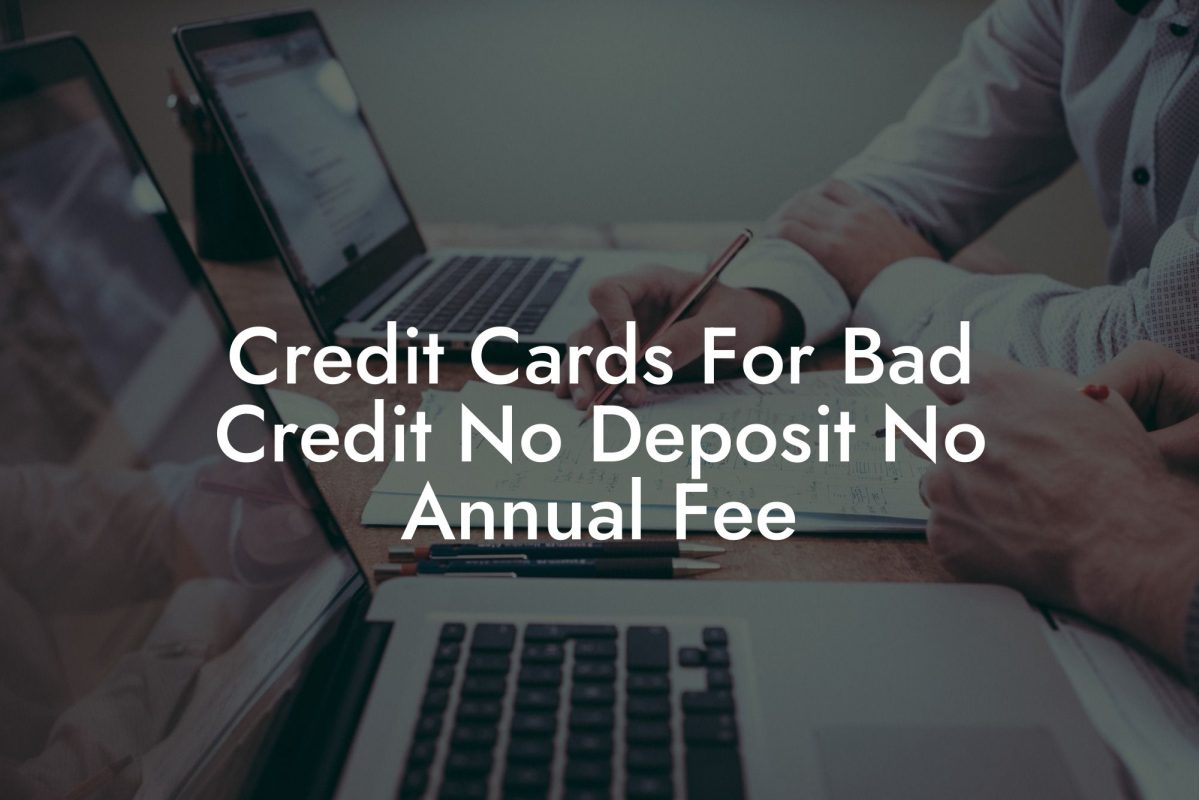If you have noticed a recent decrease in your credit card limit, you are not alone. Many people are seeing their limits decreased as banks tighten their lending standards. There are a number of reasons why your limit may have been reduced, but don't worry - we will walk you through them all. In this article, we will explain why credit card limits go down, what you can do to prevent it, and how to get your limit increased if necessary.
Quick Links to Useful Sections
Why Did My Credit Card Limit Decrease Table of Contents
Why Did My Credit Card Limit Decrease Table of Contents
Why Did My Credit Card Limit Decrease?
Will My Credit Limit Decrease Affect My Credit Score?
What is a Good Credit Utilization Ratio?
Why is Credit Utilization Important?
Does Decreasing Credit Card Limit Affect Credit Score?
Can a Credit Card Lower Your Limit Without Notice?
Why Did My Credit Card Limit Decrease Table of Contents
Why Did My Credit Card Limit Decrease?
Will My Credit Limit Decrease Affect My Credit Score?
What is a Good Credit Utilization Ratio?
Why is Credit Utilization Important?
Does Decreasing Credit Card Limit Affect Credit Score?
Can a Credit Card Lower Your Limit Without Notice?
Why Did My Credit Limit Increase Automatically?
Can My Credit Limit Reduce Without Warning?
What is a Credit Limit?
Your credit limit is the maximum amount of money you're allowed to borrow on your credit card. It's set by your credit card issuer when you open an account and can change over time.
Why Did My Credit Card Limit Decrease?
There are a few reasons why your credit card limit might decrease. One reason could be that you've been making more late payments or missing payments altogether. This can cause your issuer to lower your limit as a way to minimize their risk.
Another reason why your credit limit may have decreased is because you used up a lot of your available credit in a short period of time. This is often referred to as "maxing out" your credit card, and it can be harmful to your credit score. If you've been doing this, your issuer may have lowered your limit as a way to get you to use your credit more responsibly.
Lastly, your credit limit could have decreased simply because the issuer decided to lower limits for all cardholders due to changes in their business model or overall risk management strategy. This is something that happens from time to time, and there's usually not much you can do about it other than shop around for a new credit card.
If you're wondering why your credit limit has decreased, the best thing to do is contact your issuer and ask for an explanation.
Will My Credit Limit Decrease Affect My Credit Score?
It all depends on how you use your credit. If you carry a balance on your credit card from month to month, then a lower credit limit could mean that you're using a higher percentage of your available credit. This is called your "credit utilization ratio," and it's one factor that makes up your credit score. So in this case, a lower credit limit could lead to a lower credit score.
But if you always pay off your balance in full each month, then the decrease in credit limit shouldn't have any effect on your score whatsoever. Your monthly statement balance will be the same as it was before, so your credit utilization ratio will stay the same.
So there you have it! Whether or not a decrease in credit limit affects your score just depends on your individual circumstances. If you're ever worried about how something might affect your credit, the best thing to do is check your credit report and score regularly so you can keep an eye on any changes.
What is Credit Utilization?
Credit utilization is one of the most important factors in credit scores. It's also one of the easiest to understand: credit utilization is simply how much of your available credit you're using at any given time.
For example, let's say you have a credit card with a $1000 limit. If you never charge more than $250 to it in a month, your credit utilization will be 25%. But if you start charging $500 to it every month, your credit utilization will jump up to 50%.
Utilization is important because it shows lenders how risky you are as a borrower. The higher your utilization, the greater the chance that you'll miss a payment or default on your debt. And that means lenders will be less likely to approve you for new credit.
There are a few different ways to lower your credit utilization ratio:
- Request a credit limit increase from your card issuer. This is probably the easiest way to instantly reduce your credit utilization. If you have a good history with your lender, they may be willing to give you a higher credit limit without requiring you to put down any additional collateral.
- Pay down your debt. This will obviously take longer than requesting a credit limit increase, but it's still an effective way to lower your utilization ratio. Even if you can't pay off your entire balance, every little bit helps.
- Spread out your debt over multiple cards. If you have other lines of credit available to you, you can use them to your advantage. By charging less to each card, you'll lower your overall utilization ratio.
- Keep your balances low. The closer you get to your credit limit, the higher your utilization will be. So even if you can't increase your credit limits, you can still lower your utilization by making sure you don't charge too much to your cards each month.
What is a Good Credit Utilization Ratio?
Ideally, you should keep your credit utilization below 30%. That's because anything above 30% is considered a red flag by lenders. It indicates that you're using too much of your available credit and that you may be in financial trouble.
Of course, there are always exceptions to the rule. If you have a long history of responsible credit use, lenders may not be as concerned about a high utilization ratio. And if you have a very low credit limit, it may be impossible to keep your utilization below 30%. In that case, just do your best to keep it as low as possible.
There you have it! Now you know why your credit card limit might decrease, and how to increase it again. Just remember to keep an eye on your credit utilization, and you'll be well on your way to maintaining a good credit score.
Why is Credit Utilization Important?
Credit utilization is one of the most important factors in determining your credit score. It accounts for 30% of your FICO® Score, making it the second most important factor after payment history.
Credit utilization is a measure of how much of your credit limit you're using at any given time. The lower your credit utilization, the better for your score—generally speaking, you should aim for a credit utilization ratio below 30%. That means if you have a $1000 credit limit, you shouldn't be spending more than $300 per month on that card.
If you suddenly find yourself with less available credit, it can impact your score in two ways: by increasing your credit utilization ratio and by signaling to lenders that you may be a higher-risk borrower.
Does Decreasing Credit Card Limit Affect Credit Score?
Decreasing your credit card limit can affect your credit score in a few ways. First, if you're close to your credit limit, a decrease will lower your "credit utilization ratio." This is the amount of debt you have compared to your credit limits. Second, it could indicate to lenders that you're struggling to pay off your debts. A lower credit limit could make it harder for you to get approved for new loans or lines of credit in the future.
If you're worried about how a decreased credit limit will impact your finances, there are a few things you can do. First, try to keep your balance below 30% of your new limit. This will help maintain a good credit utilization ratio and should keep your score from dropping too much. You can also contact your credit card issuer and ask for a higher limit. If you have a good history with the company, they may be willing to increase your limit back to its original amount.
Can a Credit Card Lower Your Limit Without Notice?
The answer to this question is maybe. Credit card companies can lower your credit limit at any time without notice for a variety of reasons. Some common reasons why your credit card limit may have decreased include:
- You made a late payment on your credit card
- You went over your credit limit
- Your credit score has decrease since you were approved for the card
- The credit card issuer reevaluated your account and decided to lower your credit limit
If you think one of these reasons may have caused your credit limit to decrease, you should contact your credit card issuer to find out why. They should be able to tell you why your limit was lowered and what you can do to increase it again.
Why Did My Credit Limit Increase Automatically?
It's not uncommon for credit card companies to automatically increase your credit limit. In fact, it happens quite often. There are a few reasons why they might do this.
First, if you've been using your credit card responsibly and making all of your payments on time, the credit card company may see you as a low-risk customer and decide to increase your limit. This is usually done in order to give you more spending power and encourage you to use their card more often.
Second, the credit card company may have updated their information about your income and decided that you can afford to have a higher credit limit. This is especially common if you've recently gotten a raise at work or started working full-time after previously being a student.
Lastly, your credit limit may have increased simply because the credit card company has decided to increase limits for all of their customers. This is often done in response to inflation or changes in the economy.
If you're not sure why your credit limit increased, it's always best to contact your credit card company directly and ask. They should be able to give you more information about why your limit was increased and whether or not it will impact your interest rate or other terms of your account.
Can My Credit Limit Reduce Without Warning?
In short, yes. Your credit issuer can lower your credit limit without warning. However, they are required to notify you of the change in writing at least 45 days in advance. So if you see a sudden decrease in your credit limit, be sure to check your mail for a notice from your issuer explaining why.













